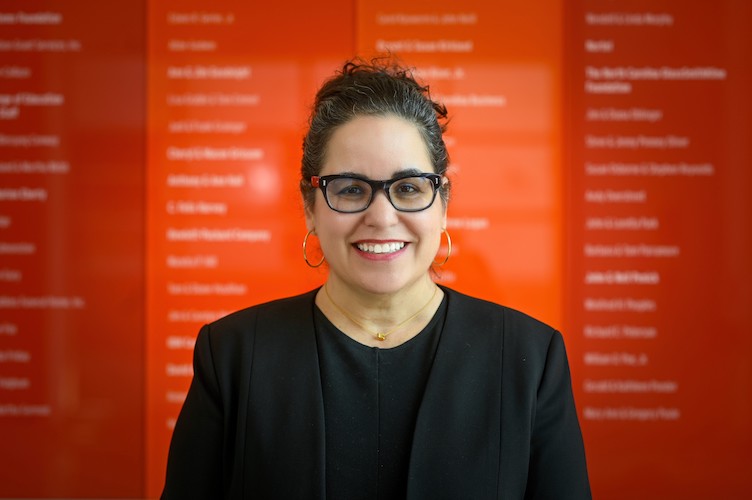FLIP-STEM Hub
The Fostering Learning, Identity and Participation within Science, Technology, Engineering and Mathematics (FLIP-STEM) Hub aims to help support racially, linguistically and/or neuro diverse middle school students in STEM education.
The question we seek to answer is:
How can innovative technologies support minoritized and strategically undervalued middle school students’ full identities to be welcomed, honored, and developed to impact learning and participation in fundamentally new ways?
The project aims to answer this question by centering secondary students’ knowledge and experiences in technology design and development. By designing with (as opposed to for) students, the hub will document a wide landscape of students’ experiences from which innovative technologies that are grounded in generative artificial intelligence, augmented reality, place-based learning, and/or game-based learning can use students’ knowledge and experiences as inputs for STEM learning and discourse opportunities.
More specifically, by incorporating data science as a focus, this initiative will enable a deeper exploration of how students’ own experiences, interests, and knowledge can be transformed into meaningful datasets for exploration and investigation. This approach will not only empower students to see their experiences as valuable data sources but also teach them critical reasoning and problem-solving skills. Thus, this initiative will provide students with a hands-on, practical understanding of data science, and prepare them for future challenges in a data-centric world.

Project Framework

Funders



Partners
The identified assets and partners committed to the work of this hub address underlying, related needs at the intersection of special education, technology development, equality, diverse backgrounds, access and inclusiveness.
Communities have many strengths, including traditional, indigenous, and local knowledge and practices. Unfortunately, these strengths are not usually considered in technology development.
The Design Justice Network contributed expertise in design justice and helped facilitate learning for our hub community.


Project Team
What We Are Reading
Chronaki, A., & Kollosche, D. (2019). Refusing mathematics: A discourse theory approach on the politics of identity work. ZDM, 51(3), 457–468. https://doi.org/10.1007/s11858-019-01028-w
Cohen, S. M., Hazari, Z., Mahadeo, J., Sonnert, G., & Sadler, P. M. (2021). Examining the effect of early stem experiences as a form of stem capital and identity capital on STEM Identity: A gender study. Science Education, 105(6), 1126–1150. https://doi.org/10.1002/sce.21670
Connor, D. J. (2014). Social Justice in education for students with disabilities. The SAGE Handbook of Special Education: Two Volume Set, 111–128. https://doi.org/10.4135/9781446282236.n9
Ibourk, A., Hughes, R., & Mathis, C. (2022). “it is what it is”: Using storied‐identity and intersectionality lenses to understand the trajectory of a young black woman’s science and math identities. Journal of Research in Science Teaching, 59(7), 1099–1133. https://doi.org/10.1002/tea.21753
Marshall, S. (2023). But what does it look like in Maths? International Journal of Multicultural Education, 25(1), 1–29. https://doi.org/10.18251/ijme.v25i1.3251
Sfard, A., & Prusak, A. (2005). Telling identities: In search of an analytic tool for investigating learning as a culturally shaped activity. Educational Researcher, 34(4), 14–22. https://doi.org/10.3102/0013189×034004014









